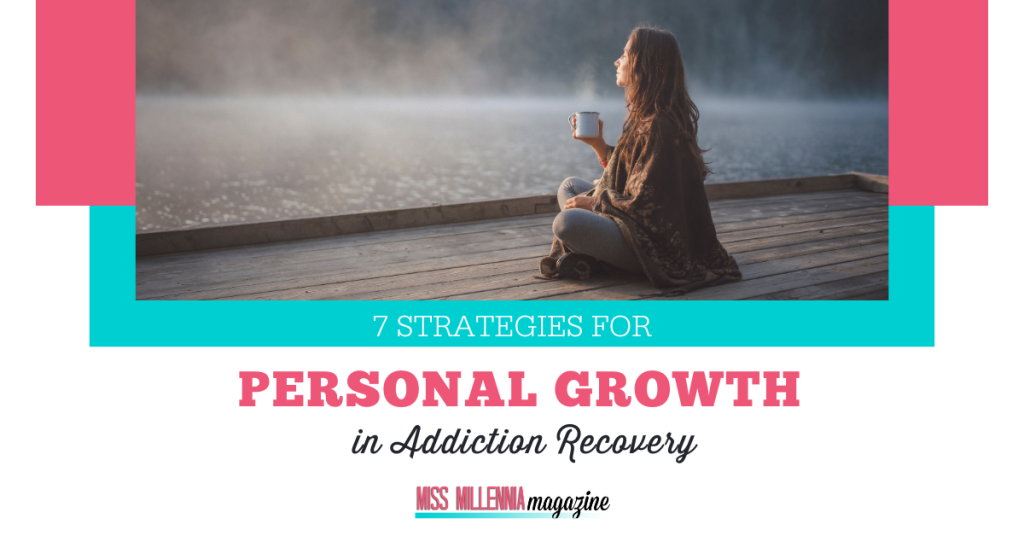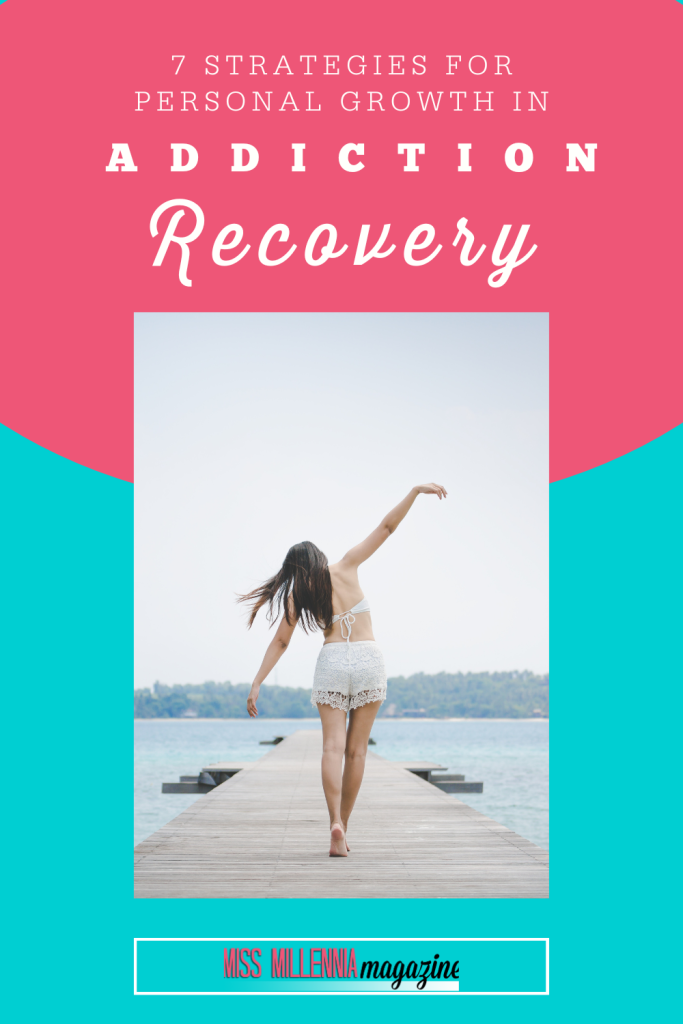7 Strategies for Personal Growth in Addiction Recovery

Addiction is a complex disease that significantly impacts an individual’s mental, physical, and emotional well-being. It will change how a person thinks, feels, and behaves, resulting in a complete transformation in the person.
Addiction can cause an individual to isolate from their family and friends, lose interest in the activities they enjoyed once, and experience drastic changes in mood and behavior. This can lead to financial, legal, health, and relationship problems. In addition, as the disease progresses, individuals will experience a decline in mental and physical health, making the addiction recovery process even more challenging.
Addiction recovery is not only about overcoming physical dependence on drugs or alcohol but also about achieving personal growth and development. Unfortunately, many individuals in recovery need to rebuild their lives from scratch, which requires a significant commitment to personal growth. A reputable rehab like the WhiteSands Alcohol & Drug Rehab in Florida recognizes that the patients can thrive during their addiction treatment but struggle to establish a routine and adopt a healthy lifestyle once they leave the treatment center. Therefore, they have created a life skill program that would assist them in developing skills to maintain long-term sobriety and help them lead a successful and balanced life possible.
While addiction recovery is not an easy journey, it can be an opportunity to develop new skills and find a purpose in life. So, delve into the article to learn some strategies for personal growth in addiction recovery.
#1) Identify your triggers
One of the most important steps to staying sober and leading a balanced life is to figure out your external triggers. Triggering factors can be people, places, things, or situations that cause thoughts about substance use. Some other common triggers include:
- Stress
- Environmental cues
- Acquaintance with people who uses drugs or drink
- Relationship issues
- Job or financial crisis
- Emotional distress

Once you identify the triggers, you can develop a plan to avoid them and overcome their risk.
#2) Practice effective Coping mechanisms to manage emotions
Emotions are one of the biggest hurdles in addiction recovery. An addicted individual will tend to consume the substance when facing some adverse situation and will resort to the importance of coping with sudden changes. Therefore, emotional wellness is crucial to navigating life changes and building meaningful relationships.
To learn effective coping mechanisms, it is best to enroll in rehab. A reputable Fort Myers Treatment Center like WhiteSands Alcohol and drug rehab offers a comprehensive life skills program that helps individuals in addiction recovery and develops the skills they need to reintegrate into society successfully. The program covers various areas, including budgeting, job skills, healthy communication, and stress management. In addition, these strategies can be utilized for personal growth and healthy interactions with others post-treatment.
#3) Choose a surrounding that will support sobriety.
A supportive and stable living environment is essential to recover from addiction and growing during addiction recovery. This may mean living in a stimulating environment that fosters your overall well-being and is free from drugs and alcohol. This might entail joining a sober living program or relocating back home with your parents to develop skills for independent sober living.
#4) Find new hobbies
An integral part of intellectual wellness is enriching your skills and knowledge. This will not just create a sense of fulfillment but will also improve your self-efficiency. There are numerous ways to stimulate yourself intellectually. For example, you may pick up hobbies like playing guitar or gardening. Or you can also consider pursuing a degree or technical program.
#5) Eat healthy and exercise regularly.
Addiction is a complex disorder that can affect a person’s physical health. But physical well-being is essential to recover from addiction and for your overall well-being. And a key to enhancing your physical well-being is eating healthy and exercising.

By making conscious choices about the food you consume, such as selecting nutrient-rich foods, you can nourish your body and help it heal from the effects of addiction. Engaging in physical activity can also help with physical wellness, improving mood and energy levels. Establishing a regular exercise routine, whether individually or through a group fitness class, can help maintain physical wellness and provide motivation to stay active during addiction recovery. By prioritizing your physical health, you are moving towards a healthier and happier life in addiction recovery.
#6) Practice mindfulness
Spiritual wellness is essential if you want to recover from addiction and achieve lifelong sobriety. And practicing mindfulness in your everyday life can be of great help. Being mindful will help you focus on the present instead of lingering in the past. It will also help you to deal with emotions and stress healthily.
You can start by meditating each morning, keeping a journal, or practicing yoga and tai chi, which can engage your body and mind. These practices can help you focus on the present, manage emotions healthily, and reduce stress.
#7) Create a budget
Managing finances is a crucial aspect of addiction recovery and personal growth, and individuals must learn to handle their money responsibly to pay for housing, food, and other necessities. A financial budget can help individuals manage their income and teach them how to spend and save wisely.
Conclusion
Addiction recovery is a challenging journey, but by implementing the strategies for personal growth discussed above, individuals can develop a healthier and more fulfilling lifestyle. It is important to remember that personal growth is an ongoing process, and setbacks may occur. However, with a positive mindset and the right tools, individuals can overcome obstacles and achieve their goals for a successful life in recovery.






![Creating an Easter Tradition: Confetti Eggs [Video]](https://missmillmag.com/wp-content/uploads/2016/01/confetti.jpg)
